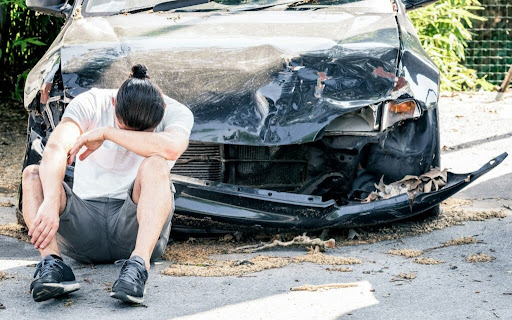Now Reading: 3 Types Of Victim Compensation Claims
-
01
3 Types Of Victim Compensation Claims
3 Types Of Victim Compensation Claims
Victims of negligence, abuse, and any other wrongdoings, files a compensation claim to seek financial assistance in paying their hospitalization and other medical expenses. Compensation programs provide supplement restitution payments for the victims when their offender fails to repair or pay the harm they’ve done.
In this post, you’ll learn the different types of victim compensation claims for your reference.
- September 11th or 9/11 Victim Compensation Claim
The 9/11 Victim Compensation Fund (VCF) aims to compensate the victims of the Twin Tower Al Qaeda air-strike terrorist attack on September 11, 2001. In the World Trade Center alone, 2,606 people died, 125 fatalities at the Pentagon, and more than 6,000 people were injured. An Act of Congress created this compensation program shortly after 9/11 incident.
The James Zadroga 9/11 Health and Compensation Act was named after the name of the first person who was declared dead due to toxic chemical exposure during the 9/11 terrorist attacks. People didn’t have to be physically present on the 9/11 site to be eligible for compensation. Congress extended the Zadroga Act’s benefits to cleanup workers, first responders, New York City residents, and other people who were exposed to the toxic dust and chemical. President Barack Obama extended the fund until 2090.
Read this great article about the September 11th or 9/11 Victim Compensation Fund (VCF) for first responders at the Twin Towers.
- Personal Injury Compensation Claim
The common types of personal injury compensation claim for victims are motor vehicle injuries, medical negligence, nursing home abuse, product liability, and public liability incidents. Generally, they compensate individuals who sustained harm or serious injury caused by another person or entity.
Here are the different types of personal injury victim compensation claims:
- Car Accident Claims: Motor vehicle accident claims involve cars, motorcycles, buses, and other motor vehicles on the road.
- Workers’ Compensation Claims: This type of compensation claim enables employees to receive financial aid from their employer, through the company’s insurance provider, when they sustain harm or injury while completing their duties or doing their job. Workplace-sustained injuries can be diseases caused by work, pre-existing conditions that are worsened through work activities and work-related travel injuries.
- Medical Negligence Claims: A victim can file a medical negligence claim when a medical professional fails to act or respond to the patient’s needs which resulted in injury or harm. Some examples of medical negligence include incorrect diagnosis, wrong prescription, and incorrect surgery performed.
- Public Liability: Slip, fall, and trip accidents in public places, such as malls, sporting venues, parks, and retail outlets. The victim can file public liability if the accident happened in public premises.
- Crime Victim’s Compensation Claim
One of the earliest victim compensation claims is compensation for crime victims. In the late 1950s, British Magistrate Margery Fry came up with this concept, and modern society’s first compensation programs were established in Great Britain and New in 1964. The first compensation program in the US was created in California in 1965. In 1996, about US$249 million were paid by state compensation programs to over 110,000 victims in the United States.
Crime victim’s compensation programs were established to provide victim’s financial assistance to violent crimes, such as sexual abuse, sexual trafficking, rape, assault, robbery, domestic violence, and drunk driving. These programs pay for medical care expenses, lost wages, funerals, mental health counseling, and loss of support.
Conclusion
Victim compensation claims come in different types, including the September 11 Victim Compensation claim, crime victim compensation claim, and personal injury claim. Because victims suffer from serious harm, compensation programs aim to provide monetary assistance to hospitalization or medical expenses, lost wages, and other damages. It’s crucial to seek the legal services of expert lawyers to ensure victims are rightfully compensated.








